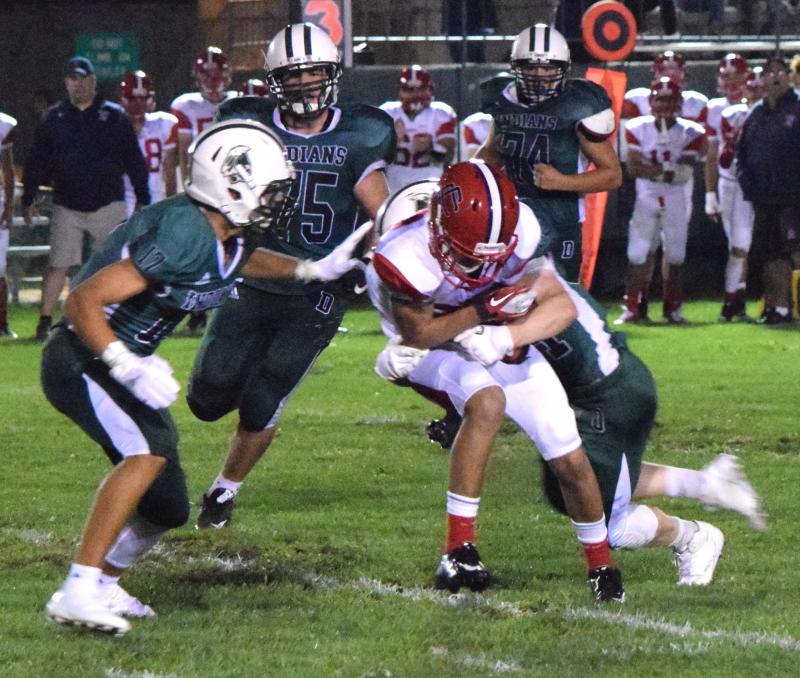Drop in football numbers may be due to safety concerns, athletics opportunities
Imagine diving headfirst into a five-foot pool when you originally thought the pool was 13 feet. Your head hits the bottom -- which arrives much quicker than you expected -- and your brain suddenly slams against the inside of your skull. The impact results in a concussion -- a form of mild traumatic brain injury.
Now imagine being a football player. You’re trying to get the ball to the end zone, and you get sacked. Again. And again. Your brain suffers that trauma on a regular basis. Sometimes, it’s so mild that you don’t even know you’ve experienced it.
Experts are still sorting out the long term effects concussions have on the body, but fear of problems later in life is already contributing to a decline in participation in the sport. According to the National Federation of State High School Associations, participation in 11-player football across the country was down 25,901 from last year.
Dartmouth High is no exception. There, 16 players are on the freshmen team, while only 11 play on the field.
“It’s an issue on the freshmen level,” said Dartmouth High Athletic Director Jeffrey Caron. “The numbers are low, much lower than the past.”
Some schools in the area don’t have freshmen teams at all.
“Fewer parents are letting their kids play when they’re younger,” said Caron. “The Pop Warner level has also struggled within the past year.”
Mike Boucher, president of the Dartmouth Youth Football League, said he doesn’t think concussions are entirely to blame for low numbers.
“We attribute the decline to the upswing in fall sports. There’s so many options [for sports] and with the travel aspect of each, it becomes harder to play more than one or two at a time,” said Boucher. “Pop Warner football requires four to five nights a week of practice for the first month, and then it tapers to three nights plus games on the weekend. The time commitment is huge.”
Logan Crane, a 2015 Dartmouth High graduate who played left tackle/defensive end, thinks the sport gets a bad reputation. He continued his football career into college, spending two years as a long snapper for the University of South Carolina.
“I really think it's sad about the whole negative persona that football leads to concussions” which leads to a degenerative brain disease found in athletes called Chronic Traumatic Encephalopathy, or CTE, “and CTE leads to death,” said Crane.
Recent medical studies covered by national media outlets have cited the frequency of CTE in deceased former NFL players. Symptoms -- which can arise years after regular blows to the head have stopped -- include memory loss, confusion, depression, and dementia.
“The whole media I feel like has made kids and especially parents really afraid of the sport of football,” Crane continued, “and that's a shame because high school football should be some of the best experiences of your life playing with your boys that you grew up with.”
Dartmouth Middle Principal Darren Doane noted that school choice, in addition to concussions, may be impacting the football numbers. A total of 85 of the 326 students who graduated from eighth grade this past June opted to attend Greater New Bedford Regional Vocational-Technical High School. That’s over a quarter of the graduating class.
“With almost one-third of students of the eighth-grade class heading to schools other than DHS, the increase in concussions in the news would also be a major factor in the decline in numbers,” said Dartmouth High Head Freshman Coach Peter Crane. “I also think that some kids are starting to specialize in a single sport and decide to play that year-round.”
As for the future of the football team at Dartmouth High? Although the
Indians did qualify for the playoffs this season, the team fell to Hopkinton in the Div. 4 South semi-finals on November 3.
But the team is looking to fight back.












